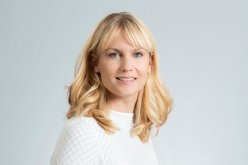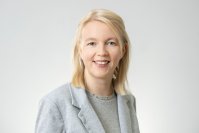Hengstberger Award 2024
Dr. D. Wylezalek
Dr. J. Schmid & Dr. S. Schüz
Dr. C. Nunn & Dr. N. Rauscher
2025, 2024, 2023, 2022, 2021, 2020, 2019, 2018, 2017, 2016, 2015, 2014, 2013, 2012, 2011, 2010, 2009, 2008, 2007, 2006, 2005, 2004
Quo Vadis Galaxy Evolution: How galaxies form and evolve
Conference date: June 30 – July 4, 2025
How galaxies form and evolve are central questions in modern astrophysics. Why do the galaxies in our universe, including our own Milky Way, look the way they do? The formation and evolution of galaxies are complex phenomena in which interactions between stars, gas, dust, black holes and supernovae play a major role. Our understanding of galaxy evolution has increased immensely in recent decades. Much of this progress is due to the rapid improvement of telescopes, space observatories and computing power. In particular, over the past two years, the James Webb Space Telescope (JWST) has provided insights into the early universe when galaxies were just beginning to form. Some of the newly discovered early galaxies already existed when the universe was just ∼300 million years old. A surprisingly large number of galaxies in the early Universe appear to harbour actively growing supermassive black holes that may have influenced the evolution of their host galaxies. The prospects for further insights into galaxy evolution are promising. Construction of the Extremely Large Telescope (ELT) is well underway, and from the 2030s the ELT will enable more systematic exploration of our universe and provide sharper images of cosmic objects than ever before. In addition, the Legacy Survey of Space and Time (LSST) will take hundreds of images of the sky every night for ten years. Our ability to record the formation and evolution of galaxies and structures in the universe is about to undergo a major transformation. However, the interpretation of these extensive data sets requires careful modelling and comparison with theoretical expectations as well as increased interdisciplinary efforts. The aim of the symposium is to facilitate an interdisciplinary exchange between observations and theoretical models of galaxy evolution and to discuss the future course of extragalactic astronomy. Thus, this conference will make an important contribution to our understanding of galaxy evolution and provide new impulses for further research in this field in the next decade and beyond.

dominika.wylezalek@uni-heidelberg.de
Construction and Experiment: Philosophical Method in Kant and German Idealism
Conference date: September 1 – 4, 2025
Philosophizing is always linked to thinking about the nature and legitimacy of this very activity. How can philosophical reflection arrive at truth as a goal of inquiry? Does philosophy use a method that is just as scientific as those of mathematics and the natural sciences? After the scientific revolutions of the 17th and 18th centuries, this question became ever more pressing in German philosophy at the time. As is still the case today, it was demanded of philosophers to establish the scientific pedigree of their own work. In their attempt to endow philosophy with a scientific method, Kant, Maimon, Fichte, Schelling and Hegel fruitfully oriented themselves at the paradigms of the emerging sciences, in particular the paradigms of geometric construction and scientific experimentation. The reception and creative adaptation of these methods in classical German philosophy will be the focus of the conference. The status of construction and experiment as overarching methodological paradigms within classical German philosophy has not yet been systematically researched. There are currently only a few works that consider a cross-section of different authors and texts, whilst taking into account the systematic function of the constructive/experimental method. The conference brings together established specialists as well as more junior scholars to investigate these overarching methodological paradigms in an interrelated and problem-based perspective. The conference’s aim is to provide a fresh perspective that enriches the research on Kant and German Idealism and to contribute to philosophy’s ongoing methodological self-reflection.
 |
 |
|
Dr. Jelscha Schmid
Philosophisches Seminar
Universität Heidelberg
Schulgasse 6
69117 Heidelberg
|
Dr. Simon Schüz
Institut für Philosophie
Rheinland-Pfälzische
Technische Universität (RPTU)
Fortstraße 7
76829 Landau i.d. Pfalz
|
Disciplinary Transformations? Humanities Impact on Reshaping the Digital Humanities
Conference date: June 12 – 13, 2025
Ongoing digitization has a massive impact on the humanities and is challenging traditional methods. Digital Humanities (DH) are seen as an expression of this digital transformation of the humanities. However, a closer look at the scientific community of those who use computer-assisted methods reveals a different perspective: DH themselves are undergoing a constant process of transformation, not least due to the constant influx of new disciplines. This Hengstberger Symposium sheds light on this transformation in detail in five different panels. The first panel exemplarily examines the diversity of disciplines in DH and thus reveals the enormous breadth of the different research areas in DH. Another panel is dedicated to the sudden enthusiasm for theory in DH in recent years. The originally text-centered DH have undergone a ‘multimodal’ transformation through the addition of new disciplines such as art history and film studies. Here, it is discussed whether these are new research communities or whether they can be integrated into DH. Disciplinary questions and research objects require a high degree of operationalization competence, which is demonstrated in a practical way in an Early Career Researcher Panel through an open call. Finally, in the last panel, which is dedicated to the "dark sides of DH," the increasing awareness of the DH community is highlighted to recognize internal problems such as the primacy of English, opaque work structures, or its own ecological footprint. In the concluding keynote and open discussion, the various aspects of the disciplinary transformation of DH are reflected upon and debated once again with all researchers in order to approach the phenomenon of disciplinary transformation in the Digital Humanities.
 |
 |
|
Dr. Christopher Nunn
Dekanat der Theologischen Fakultät
Hauptstraße 231
69117 Heidelberg
|
Dr. Natalie Rauscher
Heidelberg Center for American Studies
Hauptstraße 120
69117 Heidelberg
|

